Amman Stock Exchange deploys Nutanix Cloud Platform to ensure high availability of the auxiliary platform

The Amman Stock Exchange Company (ASE) operates, manages and develops the operations and activities of securities, commodities and derivatives markets inside and outside Jordan. ASE seeks to provide a strong and secure environment to ensure the interaction of supply and demand forces for trading in securities in line with proper and fair-trading practices and raising the awareness and knowledge of investing in the financial markets. Key responsibilities of the company include providing electronic and manual systems, means of connection and communication and equipped halls with the necessary technical tools and devices to trade in securities, monitoring trading operations and coordinating with the Commission.
Business challenges
As ASE hosts the trading platform for the country of Jordan, IT is an integral part of its overall organisational strategy. The primary goal of the IT team is to build a robust and secure IT infrastructure that ensures seamless and secure access to services and information. “To continuously improve the sustainability of our business, we utilise the best information technology infrastructure,” explained Eng. Fadi Sodah, Director, Information and Communications Technology at Amman Stock Exchange.
With the trading platform and auxiliary systems running on legacy hardware, which was originally installed in 2010, ASE’s IT team faced several performance and maintenance challenges, along with the looming threat of disruption to their operations due to aging IT infrastructure. “Our infrastructure couldn’t scale with business requirements and while our environment remained stable, every month we faced issues such as disk failure,” said Sodah.
As years progressed, the team found it increasingly difficult to procure spare parts and upgrades were starting to become increasingly complicated and expensive. “Because of the nature of our operations, everything must run in real-time without any downtime, which warrants meticulous planning for any changes and maintenance. Every time we wanted to upgrade to the latest firmware, we had to replace a lot of hardware – from servers and storage to network switches,” said Sodah. “The hardware maintenance contracts alone were costing ASE over US$35,000 annually.”
Solution
To overcome the challenges it was facing due to heterogenous IT environment, ASE decided to implement a virtual environment based on Nutanix solutions. According to Sodah, Nutanix proved to be the best option from both the technical as well as financial perspectives. “We were especially impressed with how Nutanix ensured high availability and enabled us to implement stretch clustering between different geographical locations. Stretch clustering meant that despite having two sites – both running in active-active mode – VM migration was seamless. Our entire implementation was completed without issue within just two weeks,” he said.
Customer outcomes
Implementing Nutanix’s hyperconverged infrastructure-based Cloud Platform immediately addressed the maintenance, expansion and upgrade issues ASE previously faced with its old IT infrastructure. “We went from 42U racks in each site – fully mounted with legacy servers, storage and controllers – to just 4U of servers running Nutanix AOS, including AHV hypervisor and hosting all our applications. This of course has resulted in massive energy and space savings,” Sodah added.
In addition to this significant reduction in operational expenses, the five-year licensing and support terms provided by Nutanix offers ASE the potential to save over US$56,000 per year. “Currently we also utilise a hyperconvergence solution from another vendor with whom we spend over 40,000 Jordanian dinar (US$56,000) annually on licenses. Based on the impressive results that Nutanix has delivered, we are considering moving entirely to AHV within the next two to three years which will enable us to eliminate this annual fee,” he said.
Nutanix has enabled ASE to consolidate its compute, storage and networking into an all-in-one platform that is easily controlled and monitored via a single dashboard.
Sodah highlighted that the solution’s self-healing, patching, data protection, replication, policy enforcement and event logging features have been especially beneficial to the organisation. “All this has meant that we have seen a great improvement in the ease of management. Nutanix has reduced the effort needed for managing our environment, which enables my IT team to focus on more valuable tasks,” he said. “We now have zero recovery time objectives (RTO) and recovery point objectives (RPO) because our primary and Disaster Recovery sites run in active-active mode and are connected by dark fibre.” Nutanix enables VMs to be effortlessly migrated between these sites. “Before if we had to do this, we needed multiple experts – one working on the switch, another managing storage and someone else working on the OS. With Nutanix however, this is all seamless as when we update a node, it is automatically updated across all layers,” he added.
ASE currently hosts nearly 100 VMs on its Nutanix environment and is constantly scaling this deployment. Critical applications that run on Nutanix include all the auxiliary systems for ASE’s trading platform as well as the website and its associated database. End users of these applications include brokerage firms, public shareholding companies, data vendors, investors and the Jordan Capital Market (JCM).
“Even though we were carrying out a complete upgrade of our environment to Nutanix, we faced no compatibility issues. This was truly impressive as we were migrating complex, mission-critical system which had been run for years on the previous infrastructure. Given the success of this phase of the deployment, we are now looking to add new services, including mobile apps, web applications and eServices,” he said. “Trading is high pressure business and the stakes are high. If say the ticker on our website has even a second’s worth of delay, we receive complaints. Real-time processing is key and even milliseconds of latency is unacceptable.”
Sharing an example of how the migration to Nutanix has mitigated such latency issues, Sodah pointed out that: “We observed poor performance in applications like our website and some internal apps and troubleshooting revealed that this was due to slowness in the read/write function of our other hyperconverged solution. When we moved to Nutanix, we saw an immediate and impactful improvement in performance.”
While the ease of management and cost savings that Sodah and his IT team now enjoy are no doubt highlights of the deployment, it is perhaps this enhancement of end-user experiences that ASE values most. “Ultimately, end-users are not concerned about the environment, the servers or anything else. They simply care about the performance of the applications and that’s something they have witnessed a noticeable improvement with,” said Sodah.
Outlining ASE’s ongoing plans to extend its investment with Nutanix, Sodah explained that: “We have already completed our first expansion milestone which we plan to expand on in the coming years by adding more nodes. As Nutanix’s solution has industry-leading deduplication features, it will help us accommodate future growth. We have complete confidence that this solution can serve our businesses’ requirements for the next decade.”
















